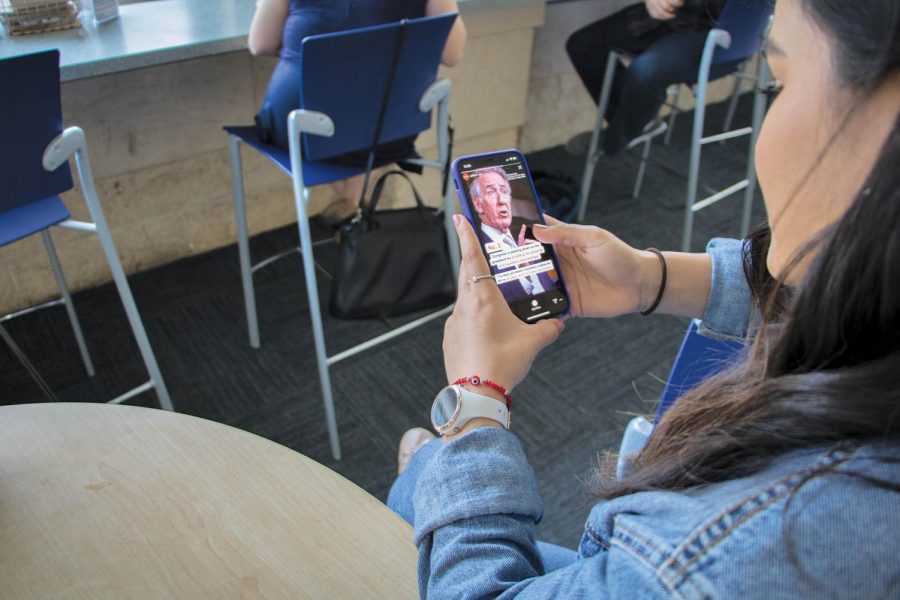Sophomore Mireya Torres does her best to consume unbiased news sources.
Social media bubbles close minds online
From our Twitter feed to our Facebook ads to our YouTube suggestions, everything we consume online is tailored directly to us. We like posts that we agree with and share them with our like-minded friends. Even the algorithms that decide what we see make sure that our clicking, scrolling and sharing isn’t interrupted by an opposing viewpoint.
This phenomena, dubbed a “filter bubble,” ensures that our feeds are full of information we want to see. Based on our own preferences, any content that is inconsistent is “filtered” out. This seems innocuous when choosing your favorite lifestyle blog or picking dog videos over cat memes. In the political sphere, however, this could become problematic.
“Those types of filters allow people to make decisions about where they gain resources and information,” professor David Thomason, assistant professor of Political Science, said. “So instead of having thousands of sources, I can have two or three, because I find those to be the most interesting or relevant.”
When we choose to filter out what political opinions we hear, we begin to confirm our own biases and enforce partisan division. According to Thomason, this is not by accident.
“Today, there is a lot of information that intentionally divides people. [News outlets] want to paint the world as liberal or conservative, red or blue,” Thomason said. “It’s a dichotomy that they want to establish so that they can use filters they know one group is most likely to adopt, and start funneling information in that further manipulates the public.”
This issue isn’t exclusive to social media. News channels we watch and who we hang out with also decides what information we absorb in our daily lives. Yet, the ease of access that comes with social media merely exacerbates the disconnect.
“It’s a lot easier for somebody to get on Facebook, for example, and just get free access,” Thomason said.
When St. Edward’s Business student Mireya Torres compiles her everyday social media feed, she has a hard time figuring out who to follow. To combat online echo chambers, she leaves social media behind when searching about politics.
“Recognizing that I can get stuck in a conservative timeline or a liberal timeline that could narrow my vision, I decided to step away from social media to gain information about politics,” Torres said.
Torres has her own ways of staying aware of her filter bubbles.
“I do recognize that I go to St. Edward’s University, a very expensive Catholic school in the city of Austin,” she said. “I live a privileged lifestyle and I don’t worry about a lot of things other people are worried about.”
In order to see other perspectives and better understand others, she does service as well.
“That helps me strengthen my empathy towards other groups who need a voice,” Torres said.
Thomason believes that bringing discussion to campus can help us escape our own bubbles.
If we don’t have healthy debate, that’s not democracy,” Thomason said. “You have to have access to information, you have to be transparent, it has to be accountable.”
